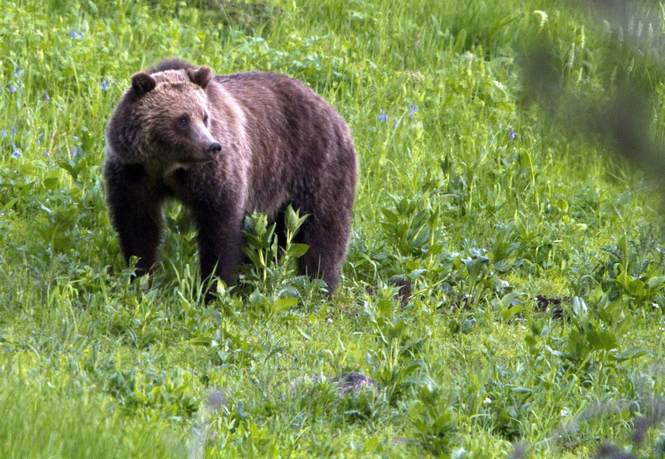Over the last 10 to 20 years, Progressives have heavily pushed the idea that we, as humans, need to do everything in our power to protect animals. In fact, in places like California, Liberals have put the lives of animals (salmon) above the needs of humans (water). Now, the pedestal they've built and placed animals on is crashing right before their very eyes.

The Role Of The Hunter
For generations, Americans have participated in hunting as a means of providing for their family. But the hunter's kill didn't just benefit his or her family. It benefited everyone in the area. You see, Progressives forget one very important fact about hunting: without hunting there is absolutely zero conservation.
Hunters play a vital role in maintaining the ecosystem. They keep animal populations from reproducing an abundant of offspring, which could actually turn a deer or elk population into a nuisance. These animals then overproduce and face a food shortage, which causes the population to die off. Hunting ensures that these animals' numbers are manageable and their food supply is sustainable.
Not only are hunters managing the ecosystem in a positive way, but they're also paying taxes that go directly back into conservation efforts. Anytime someone purchases a hunting license, that money goes into a pot used to help wildlife. The same thing goes for firearms and ammunition purchases. A tax, which varies state-to-state, is collected at the time of purchase to make sure no species becomes completely extinct.
According to NPR, about 60 percent of the funding for state wildlife conservation comes directly from licenses, firearms and ammunition purchases and angling equipment. Without the continual supply of hunters, that funding dries up.
Recommended
NPR further explains the issue:
This user-play, user-pay funding system for wildlife conservation has been lauded and emulated around the world. It has been incredibly successful at restoring the populations of North American game animals, some of which were once hunted nearly to extinction.
But with the slide in hunting participation expected to speed up in the next 10 years, widening funding shortfalls that already exist, there's a growing sense of urgency in the wildlife conservation community to broaden that funding base. Congress is looking at tapping oil and gas revenues. Some states are adding general sales taxes, while others are looking for ways to tweak the user-play, user-pay model to better represent how today's society interacts with wildlife, monetizing activities like wildlife-viewing.
Those efforts are running into a larger question: Is the greater public willing to pay more to protect wildlife?
States have had to make drastic cuts to programs due to budget cuts. Wisconsin has had to cut back on habitat management while Colorado had to curb funding for dealing with invasive species.
Here's a look at how the hunting demographic has changed over the years:

The Decline In Hunters
Fewer and fewer people are participating in hunting, which leaves states' conservation efforts in trouble. But why are fewer people likely to become hunters? A large reason has to do with a societal shift towards firearms. In the past, owning a firearm was the norm. Practically every family had a shotgun or rifle to protect themselves, defend their livestock and hunt to feed their family.
Now, that norm has changed.
More Americans are morally opposed to hunting because they "don't believe in killing an innocent animal" or they're completely removed from the killing process. They would rather get their meat from the grocery store than their backyard.
But that's leading to challenges.
"Conservationists need to be looking at what is the next step to keep our conservation programs and places strong and healthy," Mary Jean Huston, director of The Nature Conservancy in Wisconsin, told NPR. "Things need to evolve."
A panel on sustaining wildlife recently had a stark warning:
"Without a change in the way we finance fish and wildlife conservation, we can expect the list of federally threatened and endangered species to grow from nearly 1,600 species today to perhaps thousands more in the future."

Making A Change
The National Shooting Sports Foundation (NSSF) has decided to address the cause head-on and to replenish the number of hunters from the past.
“NSSF fully understands that a decline in hunting and target shooting participation will have adverse effects on a primary funding source for conservation - excise taxes on firearms and ammunition," said Mike Bazinet, NSSF's Director of Public Affairs. "We have been working closely with state and federal wildlife agencies to recruit new participants and have just received a $149,000 multi-state conservation grant from the USFWS [U.S. Fish and Wildlife Services] to learn more about recruiting the millions of Americans that have expressed an interest in getting started hunting or target shooting. We already know that inviting someone new is the best way to increase participation and promoting the fun, social and outdoors aspects of hunting and target shooting reignites well with newcomers."
NSSF has also worked with legislators in Georgia to create a youth hunting mentorship program, something that Gov. Nathan Deal (R) just signed into law.
According to NSSF, Senate Bill 332, will:
- Establish the Outdoor Passport License Program, to allow first-time Georgia hunters and anglers of all ages to receive an Outdoor Passport License – granting them the ability to fish and hunt many different types of game at a reduced cost during their first year participating in the program.
- Offer discounted licenses to those who complete the program and elect to purchase licenses for the next season.
- Create an outdoor mentor training program at the Department of Natural Resources (DNR), allowing Georgia hunters and anglers to teach hunting and fishing to the next generation.
- Provide mentors who participate in the program incentives to encourage more seasoned outdoorsmen/women to register.
Now, it's up to every American to restore the hunting population to what it once was.

























Join the conversation as a VIP Member